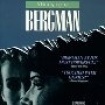The Serpent's Egg
| 片名: | The Serpent's Egg |
|---|---|
| 其它片名: | 噩兆/Das Schlangenei |
| 导演: | Ingmar Bergman |
| 编剧: | Ingmar Bergman |
| 制片人: | Horst Wendlandt, Dino De Laurentiis |
| 摄影: | Sven Nykvist |
| 美术: | Werner Achmann |
| 剪辑: | Petra von Oelffen |
| 主演: | Heinz Bennent, Liv Ullmann, David Carradine, Isolde Barth |
| 音乐: | Rolf A. Wilhelm |
| 片长: | 120分钟 |
| 年份: | 1977年 |
| 类型: | 剧情 |
| 国别: | 美国 西德 |
| 语言: | 英语 德语 |
| 格式: |
影片概述 . . . . . .
One can look at Ingmar Bergman's the Serpent's Egg as being many things, but it should not be looked at through the same prism that one looks at say Through a Glass Darkly or Scenes from a Marriage. This is Bergman being 'cinematic', and for the lone moment of a career spent with low-budget film-making and theater as his passions, a big-budget, a Hollywood star, and a sprawling canvas to work on, was at his finger-tips. It's also one of his few shots at not only an 'homage' kind of movie, but also one in English (one of only two). So it's the dark horse (no pun intended) when compared to the more one-on-one based films. This time the star, David Carradine, is not only an acrobat, but also in a city where the environment is grim, to the point of a scarcity of hope amid the post WW1 German cityscape. It's not the kind of film, in other words, that'll make money in the mass US market coming off the high of Star Wars (though it's been said that this film did make back it's money in Europe and then some). It's the kind of uncompromising vision that goes for broke, and it's a fascinating journey.
Carradine, who is at his best with a certain style and down-played quality that keeps him still cool today, is an American in Berlin, where his brother's just died in a rather grotesque fashion. This puts a certain immediate marker of doom over him and his sister in law, played by Liv Ullman (if, for no other reason to see the film, it's for her work, as usual). Over the span of a week (surprisingly so, if not for the voice over one might feel it being longer), amid the rain and nights and drunken stumbles and over-heated moments, Abel Rosenberg tries to deal with all that's going on. But there are stranger things lurking ahead with his upcoming job. This story is dealt with by Bergman in a curious way- it SEEMS a little longer at times, but it doesn't lose a certain momentum, of stripping away its character's defenses bare. Even Carradine, an actor who's mostly had a career as a larger-than-life kind of persona, gets intense with his work here.
Where Bergman gets entangled in everything he's got going on is a sense of structure to it. It's not the kind of 'soul-searching, hell if I know if God can help' film, but one more connected to the perverse, lurid qualities of the control some people could have over these people at this point of time in the world. One could say it's connected stylistically with the films of Murnau and Lang, however I would argue that more than half the time I did still feel like I was seeing a Bergman film, with his part n parcel cinematographer Sven Nykvist expressing greatly what is there in the huge set constructed of 1922 Berlin. And because of this, there's still the close-ups, and the surreality that's induced. But because there's so much to work with, with sometimes overwhelming scenes (like when Carradine walks into that bar, loaded with people, compact and tight, or whenever there's a chase or 'danger' kind of moment for Rosenberg, or just having to deal with large crowds or difficult lighting set-ups), the narrative thread gets tangled up. The opening shot of the people walking in slow-motion is brilliant, yet I didn't feel that same brilliance in the film.
Several directors hit this kind of moment in careers, where a larger-than-usual concept is provided by the appropriate budget. That it's in English is unusual, and though Bergman is functional in the language, one can tell there's not the same fluidity in the writing at times. However I don't discredit the Serpent's Egg as this horrible quagmire of a picture, as I was almost led on to believe. It still contains some extraordinary stuff, like the Cabaret scenes, as weird and compelling as some of the stuff in the Silence. Or the terror instilled when Heinz Bennent's character shows Rosenberg the 'footage' towards the end of the film. But it's also one of the more difficult films of Bergman's I've seen, that moves at a pace that's post-modern, and not too steeped in the 20's (that is one of its strong points at times in theme), while resisting going for the easy, Hollywood big-budget kind of movie-making. 在伯格曼卷帙浩繁的电影中,《蛇蛋》是一部比较奇怪的:拍摄地在德国,语言是英语,男主角来自英国。最让人摸不着头脑的是,这个片子没有打上太多老伯电影的烙印,人物没有立起来,环境和布景喧宾夺主。正处于黄金时期的伯格曼会拍出这么一部缺乏个人风格而且剧本散漫的电影着实让人感到奇怪。老伯在回忆录里面也坦然的承认《蛇
蛋》是一部失败之作。当时就在影片剧本刚刚完成是,他受到逃税罪名的指控,几个月后他远走西德,在西德完成该片(《伯格曼论电影》里面有对这件事的详尽描述)。当时他的想法是“我幻想自己可以运用一个未成气候的情况,迫不及待的派遣自己的创造力前来救援,以为他是万能的...”
于是就诞生了这部结构零散、基调灰暗的片子。老伯认为造成《蛇蛋》一败涂地的原因在于偷窥狂主题和表演者的故事完全不搭调。我部分认同他的总结。晚期伯格曼的影片里面鲜见社会崩溃造成人的道德意识败落的主题,更多的是来自于个人内心世界的塌陷,或来自信仰的崩塌,或来自爱人之间的互相伤害。以个体主义式的诘问去铺开法斯宾
德式的变形记题材,确实有点力不从心的感觉。
过分膨胀的自信碰上了不安、急促的创作环境,其后果就是一部庞大而凌乱的作品。部分延续了《沉默》的主题,但是一旦落到实处,出来的效果就是毛骨悚然而失却了神秘主义的色彩。结尾都是十分的有力,人体实验的黑白默片让电影的主题得以挽救,但是这部电影最值得称道的地方在于其服装、布景等细节之处。黑白时代的伯格曼无暇顾及纯粹影像外的气场,进入彩色时代后,更确切的说,是《呼喊与细语》后,这些细节的刻画进一步为老伯的电影平添魅力。但是正如老伯自评所言:“如果你纯粹以电影艺术的观点来看《蛇蛋》,就会发现它具有完美的整体感。整部电影没有一刻是懈怠的,反而显得过度兴奋,就好象吞服了大量的类固醇一样。”
Carradine, who is at his best with a certain style and down-played quality that keeps him still cool today, is an American in Berlin, where his brother's just died in a rather grotesque fashion. This puts a certain immediate marker of doom over him and his sister in law, played by Liv Ullman (if, for no other reason to see the film, it's for her work, as usual). Over the span of a week (surprisingly so, if not for the voice over one might feel it being longer), amid the rain and nights and drunken stumbles and over-heated moments, Abel Rosenberg tries to deal with all that's going on. But there are stranger things lurking ahead with his upcoming job. This story is dealt with by Bergman in a curious way- it SEEMS a little longer at times, but it doesn't lose a certain momentum, of stripping away its character's defenses bare. Even Carradine, an actor who's mostly had a career as a larger-than-life kind of persona, gets intense with his work here.
Where Bergman gets entangled in everything he's got going on is a sense of structure to it. It's not the kind of 'soul-searching, hell if I know if God can help' film, but one more connected to the perverse, lurid qualities of the control some people could have over these people at this point of time in the world. One could say it's connected stylistically with the films of Murnau and Lang, however I would argue that more than half the time I did still feel like I was seeing a Bergman film, with his part n parcel cinematographer Sven Nykvist expressing greatly what is there in the huge set constructed of 1922 Berlin. And because of this, there's still the close-ups, and the surreality that's induced. But because there's so much to work with, with sometimes overwhelming scenes (like when Carradine walks into that bar, loaded with people, compact and tight, or whenever there's a chase or 'danger' kind of moment for Rosenberg, or just having to deal with large crowds or difficult lighting set-ups), the narrative thread gets tangled up. The opening shot of the people walking in slow-motion is brilliant, yet I didn't feel that same brilliance in the film.
Several directors hit this kind of moment in careers, where a larger-than-usual concept is provided by the appropriate budget. That it's in English is unusual, and though Bergman is functional in the language, one can tell there's not the same fluidity in the writing at times. However I don't discredit the Serpent's Egg as this horrible quagmire of a picture, as I was almost led on to believe. It still contains some extraordinary stuff, like the Cabaret scenes, as weird and compelling as some of the stuff in the Silence. Or the terror instilled when Heinz Bennent's character shows Rosenberg the 'footage' towards the end of the film. But it's also one of the more difficult films of Bergman's I've seen, that moves at a pace that's post-modern, and not too steeped in the 20's (that is one of its strong points at times in theme), while resisting going for the easy, Hollywood big-budget kind of movie-making. 在伯格曼卷帙浩繁的电影中,《蛇蛋》是一部比较奇怪的:拍摄地在德国,语言是英语,男主角来自英国。最让人摸不着头脑的是,这个片子没有打上太多老伯电影的烙印,人物没有立起来,环境和布景喧宾夺主。正处于黄金时期的伯格曼会拍出这么一部缺乏个人风格而且剧本散漫的电影着实让人感到奇怪。老伯在回忆录里面也坦然的承认《蛇
蛋》是一部失败之作。当时就在影片剧本刚刚完成是,他受到逃税罪名的指控,几个月后他远走西德,在西德完成该片(《伯格曼论电影》里面有对这件事的详尽描述)。当时他的想法是“我幻想自己可以运用一个未成气候的情况,迫不及待的派遣自己的创造力前来救援,以为他是万能的...”
于是就诞生了这部结构零散、基调灰暗的片子。老伯认为造成《蛇蛋》一败涂地的原因在于偷窥狂主题和表演者的故事完全不搭调。我部分认同他的总结。晚期伯格曼的影片里面鲜见社会崩溃造成人的道德意识败落的主题,更多的是来自于个人内心世界的塌陷,或来自信仰的崩塌,或来自爱人之间的互相伤害。以个体主义式的诘问去铺开法斯宾
德式的变形记题材,确实有点力不从心的感觉。
过分膨胀的自信碰上了不安、急促的创作环境,其后果就是一部庞大而凌乱的作品。部分延续了《沉默》的主题,但是一旦落到实处,出来的效果就是毛骨悚然而失却了神秘主义的色彩。结尾都是十分的有力,人体实验的黑白默片让电影的主题得以挽救,但是这部电影最值得称道的地方在于其服装、布景等细节之处。黑白时代的伯格曼无暇顾及纯粹影像外的气场,进入彩色时代后,更确切的说,是《呼喊与细语》后,这些细节的刻画进一步为老伯的电影平添魅力。但是正如老伯自评所言:“如果你纯粹以电影艺术的观点来看《蛇蛋》,就会发现它具有完美的整体感。整部电影没有一刻是懈怠的,反而显得过度兴奋,就好象吞服了大量的类固醇一样。”
导演阐述 . . . . . .
获得奖项 . . . . . .
评论列表(0) . . . . . . ( 发表新评论 ) ( 更多评论 )
幕后花絮 . . . . . . (上传花絮) (展开所有)
影片图集 . . . . . . (更多/我要上传)
相关视频 . . . . . . (更多/我要分享)
- The Serpent's Egg 2009-4-15 11:15,4444分享
对本影片资料作出贡献的会员 . . . . . .
4444(创建者)





























































